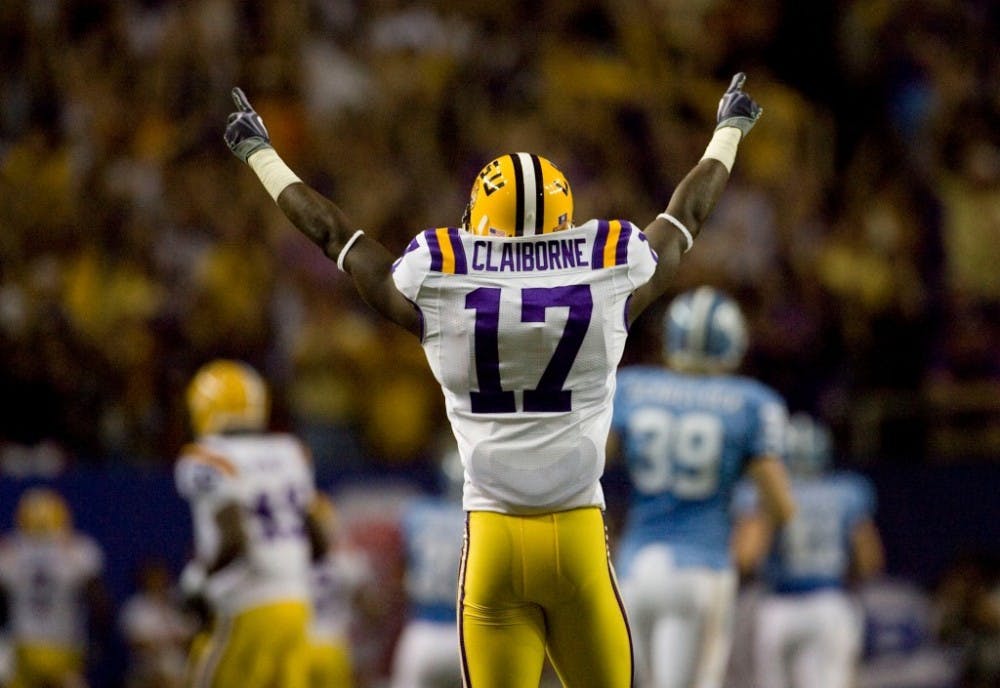By now everyone who has any sort of interest in sport has heard about Morris Claiborne. The former Louisiana State defensive back, entered into June’s NFL draft, scored a 4 out of 50 on the Wonderlic test, an examination administered to all draftees.
The problem is that Caliborne’s score, which is the lowest score any future draft pick has ever received, was supposed to remain confidential. The NFL only releases the scores to each of the league’s 32 teams and to the players themselves, not to the media and definitely not to the general public.
That’s why the journalist who leaked Claiborne’s score, Mike Florio of Pro Football Talk, should have his integrity questioned. Why did he leak Claiborne’s low score? Perhaps the more pressing issue is why the score became a source of amusement for the general public. Why did people care what a young man, sure to be a first round pick, got on an aptitude test that several NFL executives and former players have called irrelevant?
The answer isn’t clear. This young man’s score is his business and his business only. The only other party who should see his test score are the teams considering taking Claiborne in the first round. Nevertheless, Florio wanted some publicity for himself, so he single-handedly allowed Morris Claiborne to become a national punch line. It’s unfair, it’s unjust, and if I were Morris Claiborne, I would be furious.
Florio, in his original story detailing Claiborne’s score, had this to say: “The joke, however, continues to be on anyone who thinks that all college athletes are also students. Plenty of them aren’t. They’re minor-league football players who have no choice but to wait at least three years until they get a shot at joining the NFL. How else can anyone explain a person who presumably has found a way to avoid failing out of college getting such a low score on a basic intelligence test? And that gives rise to a more important question. What did LSU actually do to keep Claiborne from failing out of school?”
Maybe LSU didn’t do anything to keep Claiborne from failing out of school. It could have simply been Claiborne’s determination to do well enough in school to continue playing football for LSU. Maybe Caliborne was nervous taking the Wonderlic and that’s why he performed so poorly, he wouldn’t be the first to feel that way. Or maybe Claiborne isn’t book smart, maybe he takes longer to process information in school than others. Who cares?
Why does Claiborne’s poor performance on one aptitude test suddenly lead the public to question his overall intelligence? One test, albeit reasonably easy, should not lead anyone to consider their aptitude superior to Claiborne’s. Anyone who believes that a blind man randomly choosing answers would score better than Caliborne’s four isn’t wise. Claiborne reportedly has a learning disorder, which most certainly had an impact on his ability to answer all 50 questions affectively in the twelve minutes he was given.
It’s very possible that Claiborne simply got stuck on math problems he didn’t understand while taking the test. There are millions of intelligent people who struggle with math, especially when they’re trying to solve problems on a timed exam.
Morris Claiborne struggles solving math problems on an aptitude test. So what? His job is lining up in the secondary, finding the ball carrier or quarterback, and laying a big hit on him. After a few years of solid production, Claiborne’s low score will be a distant memory, another statistic nobody will remember.
Despite Florio’s best effort, Claiborne’s score and the public’s taunting will have no impact on Morris’ draft position, or on his psyche. The truth is Claiborne isn’t a Rhodes scholar, he won’t be attending Harvard law school. Instead, he’ll be making millions playing the game he loves in front of thousands of adoring fans each Sunday with his Wonderlic score far in the rearview mirror.


